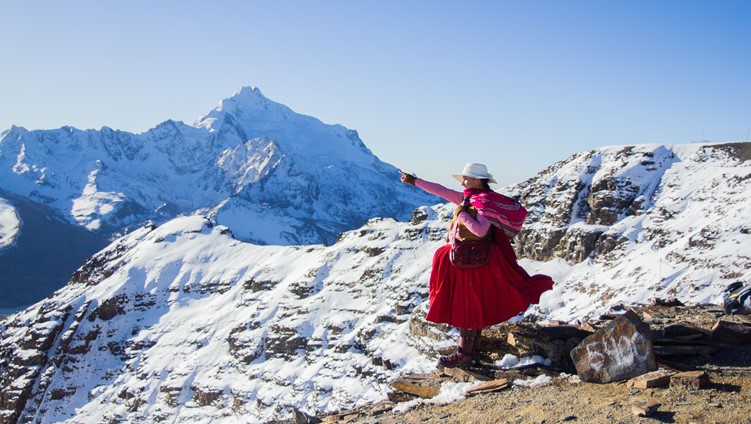Michelle is the Co-founder of Plogolution, an organisation using the Swedish invention of plogging to mobilise people to clean up the environment. We spoke with here to learn more.
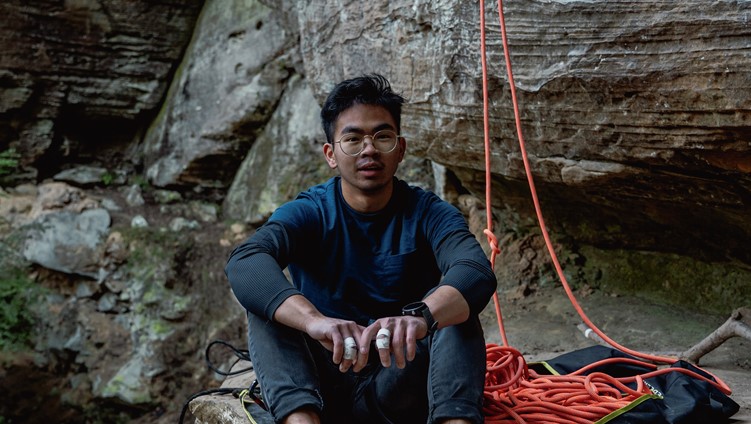
Michelle is the Co-founder of Plogolution, an organisation using the Swedish invention of plogging to mobilise people to clean up the environment. We spoke with here to learn more.
What is plogging?
Plogging comes from Sweden, and roughly translates to running or walking and picking up rubbish at the same time!
How did Plogolution come into being?
Co-founders Dermot and Michelle went for a run together and were blown away by the amount of rubbish littering our streets and waterways. They stumbled upon plogging and thought what a wonderful idea! Initially it was going to be a one-off plog with some friends, and sixteen people came together to clean up over a 5k run and 2k walk. They cleaned up over 30 huge bags of rubbish, and Plogolution was born!
What kind of impact have you had so far?
That first plog led to many many more across London and the rest of the UK. We have now held over 70 community plogs, with thousands of volunteers involved and thousands of bags of rubbish taken off streets and green spaces.
Beyond the obvious goal of clearing rubbish, what are the benefits of plogging?
At Plogolution we’ve loved the community aspect to plogging, bringing lots of people together to make a positive impact on their local environment. There is also the added benefit of extra calories burned as you run, squat to pick up rubbish and also carry the rubbish whilst running!
Do you have any particularly fond plogs/memories?
We enjoy challenges at Plogolution, and last May decided to plog the entire length of the River Thames. That’s 184 miles. We did it in 6 days! Not surprisingly it was scary just how much rubbish we came across, even in very rural areas. At the end we had picked up over 40 bags of general waste, well over 1,000 plastic bottles, over 1,000 cans and 500 glass bottles. A real mental and physical challenge!
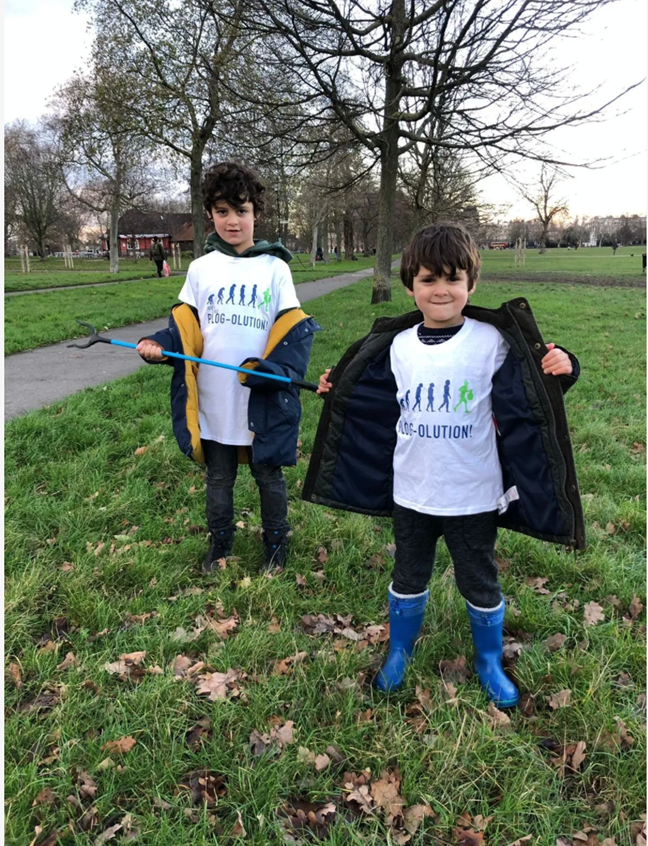
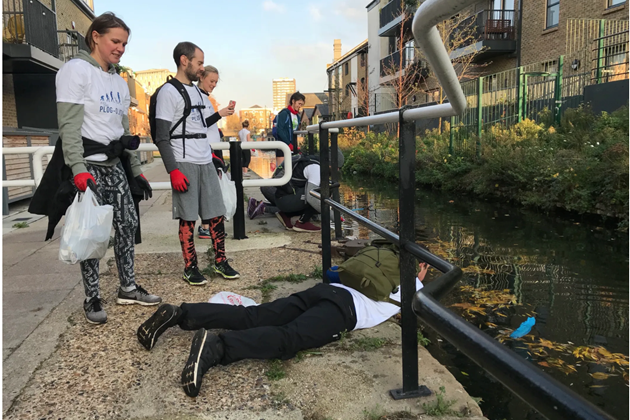
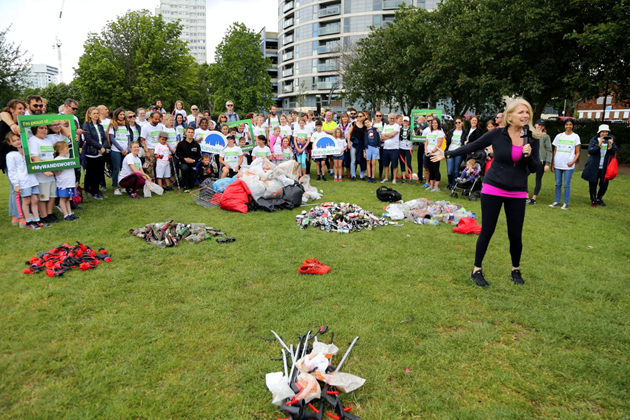
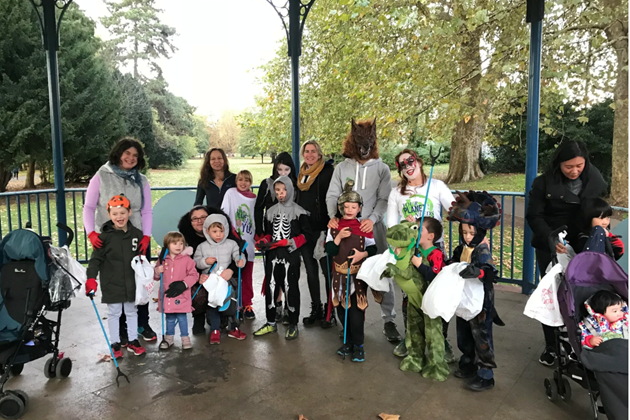
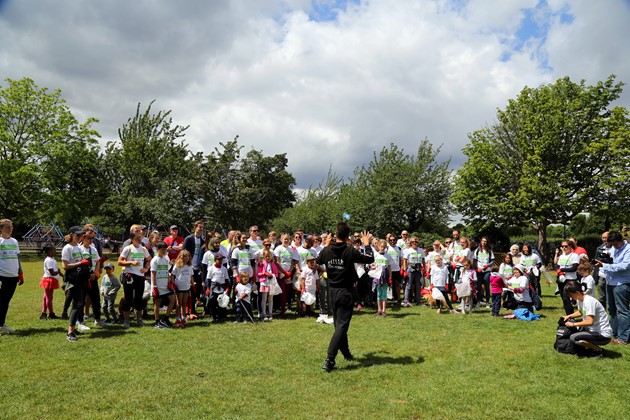
Photos from Plogolution plogs
Do you think it’s possible to take plogging from an individual/small group activity into something larger scale to effect systemic change? If so, how do you think that can be done?
This is certainly something we’re working on. We would love to bring Plogolution to green spaces across the UK and beyond – almost like the Park Run of Plogging! Quite often you don’t notice how bad the littering situation is until you’ve been part of a plog. Sadly you start to see rubbish wherever you go. We also go into schools and have started running school plogging clubs. This not only teaches kids about the impact of littering on our environment but will hopefully lead to change as the next generation grows up and is more aware of how important it is to look after our beautiful planet.
Do you think there is more that could be done at a policy level to combat littering? Is policy campaigning something Plogging has in mind?
We believe that education is key to making a difference. It would be ideal to be included within the curriculum as part of greener and sustainable initiatives. We work closely with amazing organisations such as Earth Cubs who are passionate about inspiring the next generation of global citizens.
A deposit return system would also be of significant benefit. We believe this would really help to take rubbish off the streets as well as raise some money for schools for those taking part in school plogging clubs!
What does the future hold for Plogolution?
Great things! We want to continue to increase our plogging groups across the UK and beyond, as well as continue to recruit more young plogging eco-warriors. In theory, we’d love to put ourselves out of business and not be required anymore. Sadly we may be some way from this but we won’t stop trying.
We also have a 24-hour plog planned for next year!
How can people get involved?
Keep an eye on our website for all the latest upcoming plogs (COVID dependent), and if you’re interested in running your own plogs, please do get in touch and we can help set that up.
